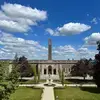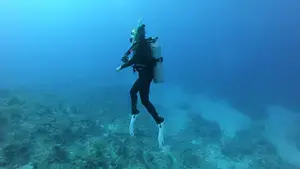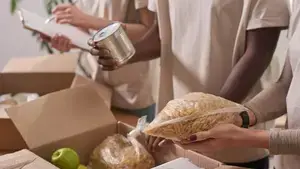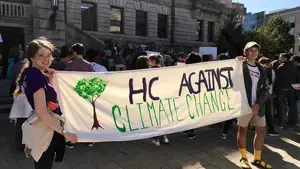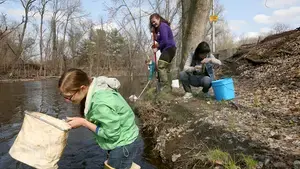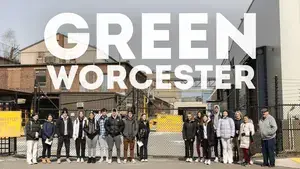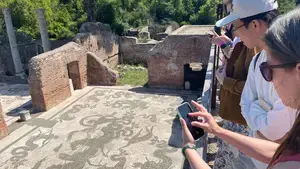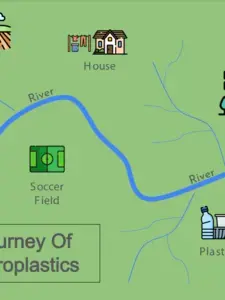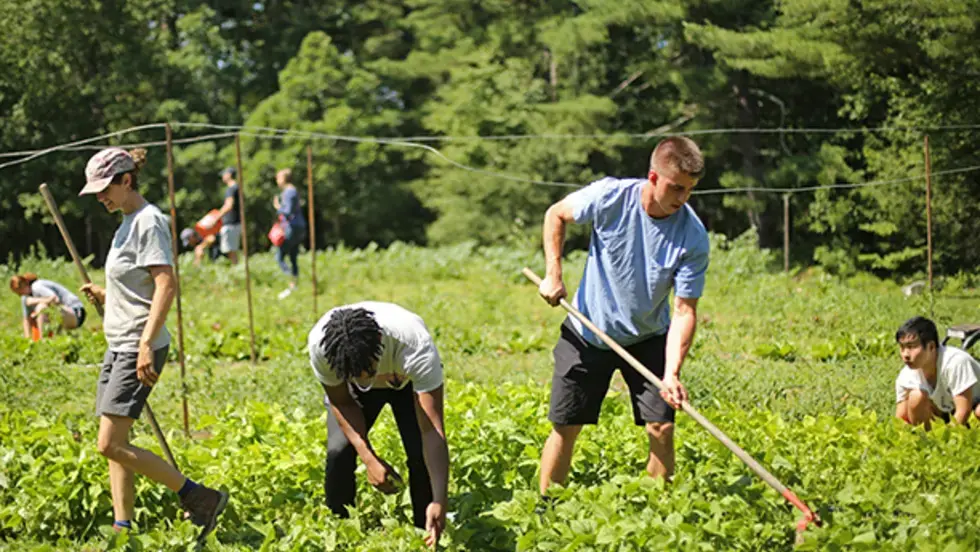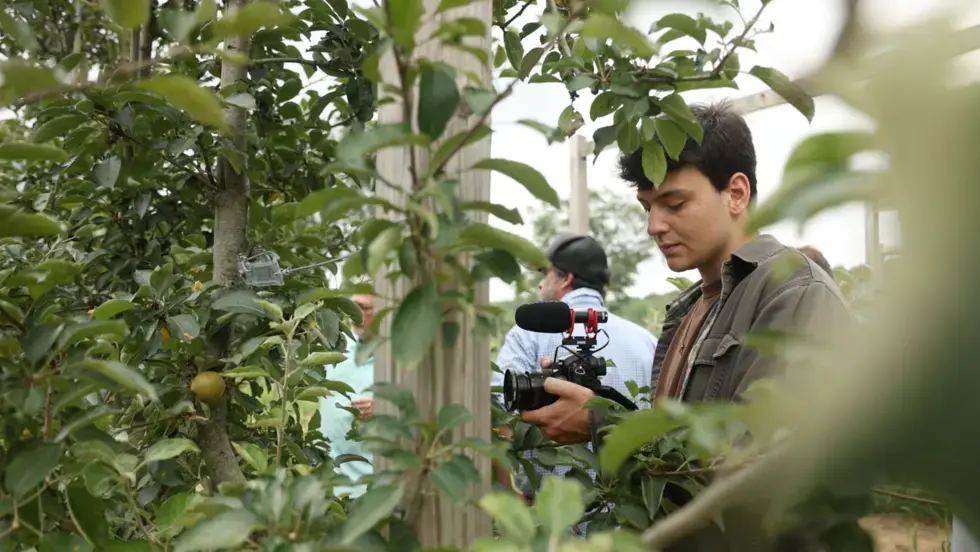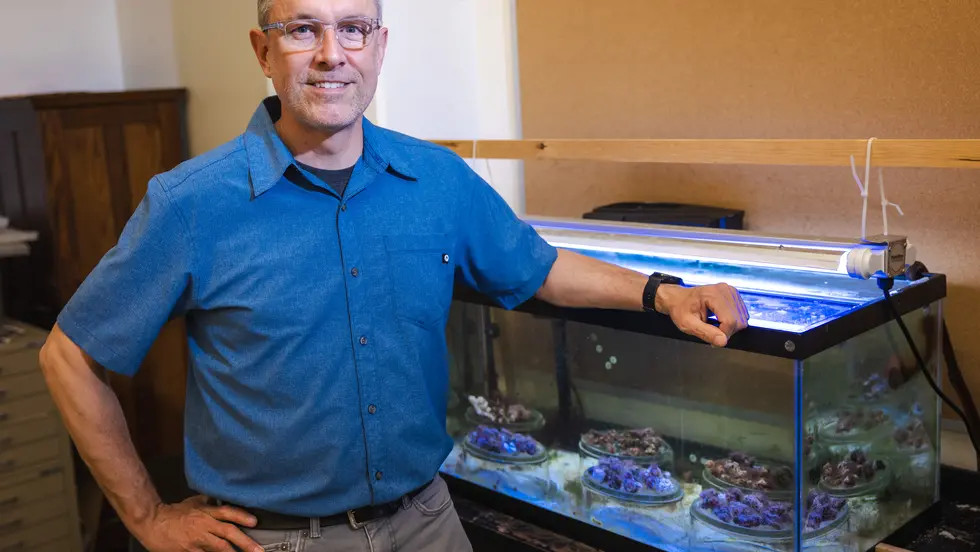
Environmental Studies
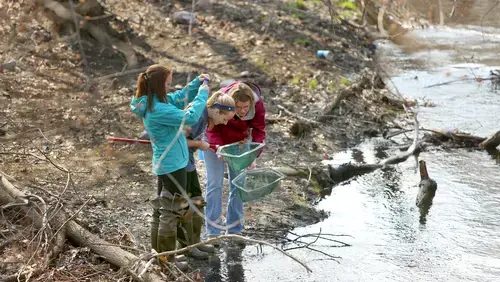
Areas of Study
Environmental Studies is a rich, interconnected and complex field. For that reason, our program provides strong foundations in:
- Social Sciences
- Humanities
- Natural Sciences
Requirements
Everyone is welcome to major or minor in Environmental Studies. Before declaring, students should take one of the introductory courses (ENVS 117 Environmental Science or ENVS 118 Environmental Perspectives), ideally during the first three semesters at the College. The major requires 14 courses. The minor requires 7 courses.
Advanced Placement Credit
AP credits may be used for advanced placement in the major or minor, but they do not reduce the number of courses required. If you scored 5, on the AP Environmental Science exam, you can (and we encourage you to) forego ENVS 117 Introduction to Environmental Science. Majors and minors may take a different environmental science course instead.
Major Requirements
These two courses are required:
- ENVS 118 Environmental Perspectives
- ENVS 117 Environmental Science, or BIOL 280 Ecology
Choose two of these courses:
- BIOL 163 Introduction to Biological Diversity & Ecology
- GEOS 150 Introduction to Geology
- PHYS 115 Introductory Physics I: Mechanics, Fluids & Waves
- CHEM 181 Atoms & Molecules, or CHEM 141 (with ½ lab) Environmental Chemistry
Choose two environmental courses from these departments. One course must be at the 200-level or higher. See ENVS course list each semester in STAR for current offerings.
- Certain courses offered by Environmental Studies, including ENVS 119 Introduction to Environmental Humanities
- Art History
- Classics
- English
- History
- Philosophy
- Religious Studies
- World Languages Literatures and Cultures
- Studio Art
ECON 224 Environmental Economics is required.
Note: ECON 110 Principles of Economics is a prerequisite for ECON 224. You are advised to take ECON 110 by the end of your second year.
Choose one additional environmental course from these departments. See ENVS course list each semester in STAR for current offerings.
- Certain courses offered by Environmental Studies, including ENVS 200 Environmental Law
- Accounting
- Anthropology
- Economics
- Political Science
- Psychology
- Sociology
Choose two environmental courses from these departments. One of these courses must have a lab. See ENVS course list each semester in STAR for current offerings.
Certain courses offered by Environmental Studies including:
- ENVS 125 Introduction to Climate Change
- ENVS 235 Climate Science
- ENVS 245 Sustainable Energy
- ENVS/GEOS ENVS/GEOS 210 Geomorphology with lab
- ENVS/GEOS 270 Watershed Hydrology
- ENVS/GEOS 350 Oceanography
- ENVS/ GEOS 310 Paleoclimatology
Other Offerings:
- Biology
- Chemistry
- Geosciences
- Physics
Choose one course from these areas:
- Geographic Information Systems (GIS)
- A statistics course offered by any department
- MATH 303 Mathematical Modeling
Choose one course from these areas:
- Geographic Information Systems (GIS)
- A statistics course offered by any department
- MATH 303 Mathematical Modeling
Choose two more environmental courses from any area. At least one must be at the 200-level or higher. One of these courses can be fulfilled by undergraduate research for academic credit (e.g., BIOL 401 or college honors thesis) with prior permission of the ENVS Chair.
ENVS 404 Capstone Seminar is required and should be taken in the fall of senior year.
Minor Requirements
These two courses are required:
- ENVS 118 Environmental Perspectives
- ENVS 117 Environmental Science, or BIOL 280 Ecology
Choose one environmental course from these departments. See ENVS course list each semester in STAR for current offerings.
- Certain courses offered by Environmental Studies, including ENVS 119 Introduction to Environmental Humanities
- Art History
- Classics
- English
- History
- Philosophy
- Religious Studies
- World Languages Literatures and Cultures
- Studio Art
Choose one environmental course from these departments. See ENVS course list each semester in STAR for current offerings.
- Certain courses offered by Environmental Studies, including ENVS 200 Environmental Law
- Accounting
- Anthropology
- Economics
- Political Science
- Psychology
- Sociology
Choose two environmental courses from these departments. See ENVS course list each semester in STAR for current offerings.
Certain courses offered by Environmental Studies including:
- ENVS 125 Introduction to Climate Change
- ENVS 235 Climate Science
- ENVS 245 Sustainable Energy
- ENVS/GEOS ENVS/GEOS 210 Geomorphology with lab
- ENVS/GEOS 270 Watershed Hydrology
- ENVS/GEOS 350 Oceanography
- ENVS/ GEOS 310 Paleoclimatology
Other Offerings:
- Biology
- Chemistry
- Geosciences
- Physics
Choose one course from these areas:
- Geographic Information Systems (GIS)
- A statistics course offered by any department
- MATH 303 Mathematical Modeling
Choose one more environmental course from any area. See ENVS course list each semester in STAR for current offerings.
Meet Your Department Chair
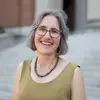
Opportunities
Study Abroad
Classes taken while studying abroad can readily fulfill Environmental Studies requirements. Majors are encouraged to study abroad for a full year (up to 4 courses can be applied), one semester (up to 3 courses can be applied), a summer, or a Maymester (1 course can be applied). Minors are also encouraged to study abroad for a full year (3 courses can be applied), one semester (2 courses can be applied), a summer, or a Maymester (1 course can be applied).
Community-Based Learning
Many of our courses are designed around Community-based Learning, which provides students with an opportunity to partner with local organizations to put their learning into action outside of the classroom. Recent projects include a Worcester Public Schools initiative to develop lesson plans around food waste and the benefits of composting, and a Journey of Microplastics Game for elementary school students around recycling.
The Jairam Miguel Rodrigues Rao Prize for Work on Environmental Racism and Justice
The Jairam Miguel Rodrigues Rao Prize — named for Political Science Professor Maria Rodrigues’ late son Jairam, an activist at heart, who had worked toward environmental justice from an early age — is awarded annually for the best paper, project or presentation that addresses environmental racism and justice written by a student, as an individual or in collaboration with others, at the College.
Eco-Action Student Group
Eco-Action is a student environmental concerns organization at Holy Cross. The group grows campus consciousness of humans’ relationship to the environment by organizing education, service, and action opportunities in the community.
Research, Internships, or Volunteering
Environmental Studies students can work with local nonprofit agencies and the Center for Career Development to find summer internships, research, and volunteering opportunities. Students have partnered with organizations such as Blackstone River Coalition, Broad Meadow Brook Wildlife Sanctuary and Conservation Center, EcoTarium ecology museum, Greater Worcester Land Trust, and Regional Environmental Council.
The Massachusetts Department of Environmental Protection offers exciting opportunities year-round for individuals who are interested in working and using their skills in the environmental field. Interns are provided with education, training, hands-on experience, supervision, and networking opportunities, utilizing modern technology and information systems during their internships.
Recent Projects
Students in the Environmental Studies Department have the opportunity to work in faculty labs, engage in research projects, and conduct projects outside of the classroom through Community Based Learning. Check out the exciting work students are doing.
